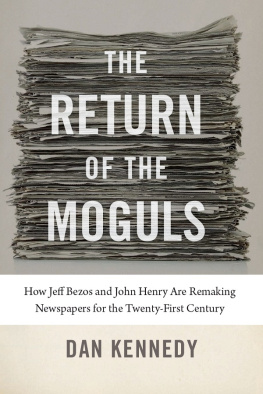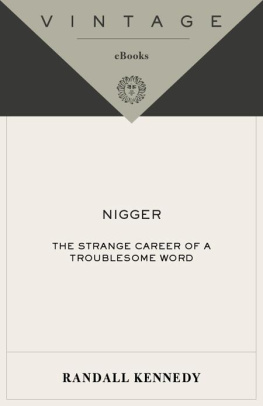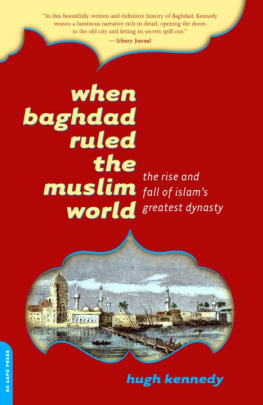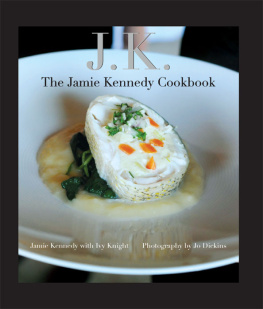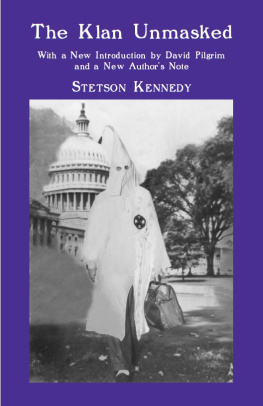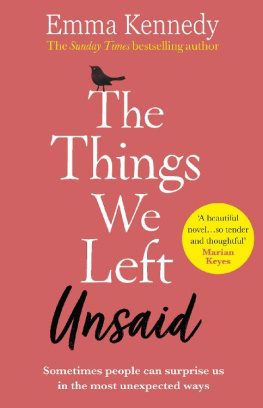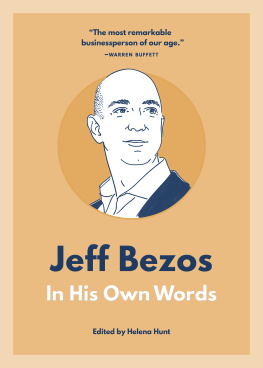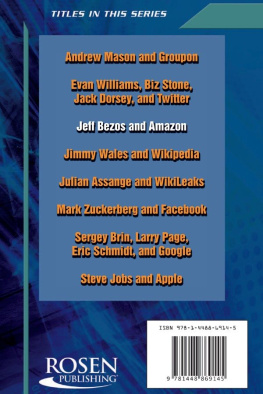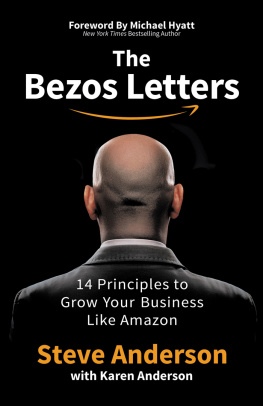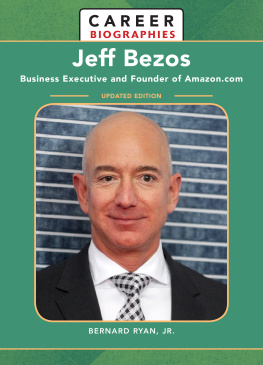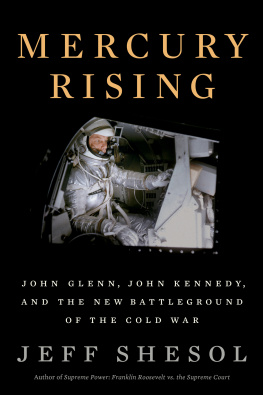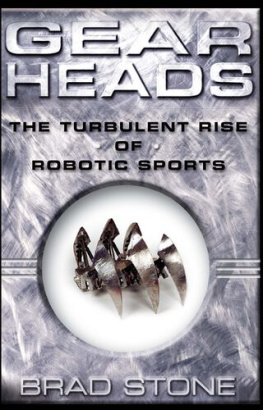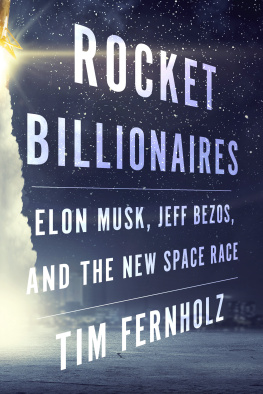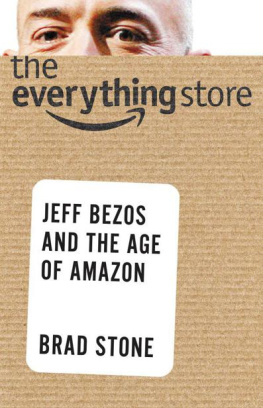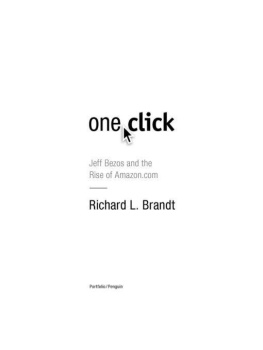ALSO BY DAN KENNEDY
Little People: Learning to See the World Through My Daughters Eyes
The Wired City: Reimagining Journalism and Civic Life in the Post-Newspaper Age
DAN KENNEDY

How Jeff Bezos and John Henry Are Remaking Newspapers for the Twenty-First Century
ForeEdge
ForeEdge
An imprint of University Press of New England
www.upne.com
2018 Dan Kennedy
All rights reserved
For permission to reproduce any of the material in this book, contact Permissions, University Press of New England, One Court Street, Suite 250, Lebanon NH 03766; or visit www.upne.com
Library of Congress Cataloging-in-Publication Data
available on request
Hardcover ISBN: 978-1-61168-594-7
Ebook ISBN: 978-1-5126-0178-7
FOR TIM AND BECKY
CONTENTS
- INTRODUCTION
The Rise and Fall of Newspapers in a Time of Turmoil - CHAPTER ONE
The Swashbuckler
Jeff Bezos Puts His Stamp on a Legendary Newspaper - CHAPTER TWO
The Crux of the Matter
John Henrys Culture of Experimentation - CHAPTER THREE
Unrequited Love
Spurned in Boston and Maine, Aaron Kushner Looks West - CHAPTER FOUR
This Is Your Brain on the Internet
Can News Break Free of the Distraction Machine? - CHAPTER FIVE
Getting Big Fast
How the Washington Post Is Becoming the Amazon of News - CHAPTER SIX
The End of Free
The Boston Globe Tells Readers to Pay Up - CHAPTER SEVEN
Orange Crush
From California Dreaming to an Epic Nightmare - CHAPTER EIGHT
Money Isnt Everything
Why Wealthy Ownership Doesnt Guarantee Success - CHAPTER NINE
All In
Jeff Bezos Takes His Place as an Enemy of the People - EPILOGUE
The Fall and Rise of Journalism in the Age of Trump
INTRODUCTION
THE RISE AND FALL OF NEWSPAPERS IN A TIME OF TURMOIL
IN EARLY 2017, the Washington Post unveiled a new slogan, Democracy Dies in Darkness. The ominous-sounding phrase, displayed prominently beneath the papers nameplate, was a favorite saying of the Posts legendary reporter Bob Woodward in describing what happens to self-government in the absence of reliable, independent journalism. much more dystopian.
Around the same time, the Boston Globe published an unusual manifesto headlined Our Mission, which began: The truth matters. At the end of the day it may be the only thing that matters. Finding it is our job, and our pledge to anyone who takes the time to read or watch or listen to what weve found out. logo and the Twitter hashtag #FactsMatter in white type on a black background.
For nearly a generation the newspaper business has been in steep decline. Beset by technological advancements that hollowed out the advertising revenue that had traditionally been its main source of revenue, as well as by cultural changes and big bets on failed ideas such as free online content, newspapers had been in danger of shrinking into irrelevance. Yet the 2016 presidential campaign and the early months of the Trump presidency served to remind the public of journalisms importanceand newspapers have long served as the primary engines of the public-service journalism we need to govern ourselves.
After years of pessimism and declining fortunes, the prospect of a new generation of media moguls injecting money and energy into their newspapers inspired hope.
By 2017, Kushner was long gone, the victim of his overly ambitious expansion plans. But the Post was thriving under Bezos, and the Globe, despite some setbacks and continued shrinkage of the reporting staff, was doing reasonably well under Henry. Meanwhile, the journalistic landscape had changed considerably. In a society long marred by political polarization, there was plenty of evidence that the presidential campaign and its aftermath had made things worse.
The term fake news degenerated in just a few months from a useful label for a certain type of for-profit scheme aimed at gaming Facebooks and Googles algorithms into an all-purpose smear directed at any news story that Trump and his supporters didnt like. democracy. Blue America clustered around mainstream news outlets such as the three major networks, NPR, and newspapers. Red America watched the Fox News Channel and logged onto Breitbart News.
There is little question that democratic self-government continues to depend on newspapers, whether in print, online, or both. Bezos, Henry, and Kushner are important not just because they are three wealthy individuals who came along hoping to save their papers and perhaps offer lessons for the rest of the beleaguered business. Whats also important is that they arrived at a turning point in newspapers long, painful transition from print to online. By the early 2010s, many people who study journalism were reaching the conclusion that nearly two decades of hoping that online ads would support free news had come to naught. The value of digital advertising was plummeting because of its very ubiquity. If newspapers were to survive, they had to convince their readers to payfor the print edition, of course, but for online access as well.
The three moguls each took a different approach to addressing this new reality. Bezos quickly transformed the Post into a national digital newspaper, amassing an enormous online audience in the hope of persuading some percentage of that audience to pay a small monthly fee. Henry, faced with the challenge of serving a much more constricted regional audience, decided to impose relatively high fees. And Kushner put the physical newspaper front and center, charging as much for digital as he did for printa strategy that might have had some success if he hadnt made the mistake of expanding too rapidly.
The lesson of Bezos, Henry, and Kushner is that there is no lesson; or, rather, that there are many lessons, some worth emulating, some cautionary. In seeking a path out of the morass into which the newspaper business has fallen, the real value lies in experimentation. Ultimately there may be no way out. Media fragmentation, changes in reading habits, and a digital advertising model that is enriching Facebook and Google at the expense of everyone else may mean that newspaperswhether online or in printwill fade away in ten, twenty, or fifty years. But given their unique role in democracy, it is of crucial importance that public-spirited people of financial means are trying to save them.
NEWSPAPERS MATTER. When I use the term newspaper, I am not referring strictly to print. If and when a major daily newspaper successfully makes the transition to digital-only, it will still be no less a newspaper. Instead, my definition of a newspaper is a news organization whose main output consists of original, mostly text-based journalism that covers important events and issues; whose coverage is broad-based rather than niche-oriented and includes politics, government, breaking news, investigative reporting, business, sports, arts, and culture; and that appeals to a mass audience, either at the community level or nationally.
The Huffington Post is not a newspaper because, although it publishes some original journalism, much of its content consists of the aggregated work of others. Politico and Vox are not newspapers because they are narrowly focused on politics and policy analysis, respectively, even though they occasionally branch out into other areas. The Washington Post, the Boston Globe, and the Orange County Register are newspapers, and would be even if they stopped publishing their print editions altogether.
Next page
